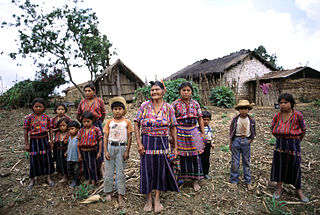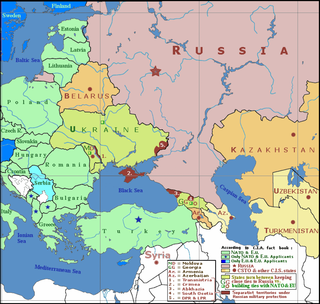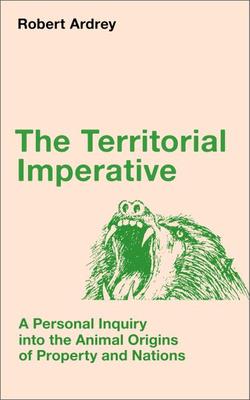Related Research Articles

Sovereignty is the defining authority within individual consciousness, social construct, or territory. Sovereignty entails hierarchy within the state, as well as external autonomy for states. In any state, sovereignty is assigned to the person, body, or institution that has the ultimate authority over other people in order to establish a law or change existing laws. In political theory, sovereignty is a substantive term designating supreme legitimate authority over some polity. In international law, sovereignty is the exercise of power by a state. De jure sovereignty refers to the legal right to do so; de facto sovereignty refers to the factual ability to do so. This can become an issue of special concern upon the failure of the usual expectation that de jure and de facto sovereignty exist at the place and time of concern, and reside within the same organization.

Indigenous peoples are culturally distinct ethnic groups whose members are directly descended from the earliest known inhabitants of a particular geographic region and, to some extent, maintain the language and culture of those original peoples. The term Indigenous was first, in its modern context, used by Europeans, who used it to differentiate the Indigenous peoples of the Americas from the European settlers of the Americas and from the Sub-Saharan Africans who were brought to the Americas as enslaved people. The term may have first been used in this context by Sir Thomas Browne in 1646, who stated "and although in many parts thereof there be at present swarms of Negroes serving under the Spaniard, yet were they all transported from Africa, since the discovery of Columbus; and are not indigenous or proper natives of America."

World peace, or peace on Earth, is the concept of an ideal state of peace within and among all people and nations on Planet Earth. Different cultures, religions, philosophies, and organizations have varying concepts on how such a state would come about.
A territorial dispute or boundary dispute is a disagreement over the possession or control of land between two or more political entities.

In the social sciences, a social group is defined as two or more people who interact with one another, share similar characteristics, and collectively have a sense of unity. Regardless, social groups come in a myriad of sizes and varieties. For example, a society can be viewed as a large social group. The system of behaviors and psychological processes occurring within a social group or between social groups is known as group dynamics.
A territory is a subdivision of a country having a legal status different from other regions of that country.
Cross-cultural communication is a field of study that looks at how people from differing cultural backgrounds communicate, in similar and different ways among themselves, and how they endeavor to communicate across cultures. Intercultural communication is a related field of study.

Borders are usually defined as geographical boundaries, imposed either by features such as oceans and terrain, or by political entities such as governments, sovereign states, federated states, and other subnational entities. Political borders can be established through warfare, colonization, or mutual agreements between the political entities that reside in those areas; the creation of these agreements is called boundary delimitation.
The term 'minority group' has different usages depending on the context. According to its common usage, a minority group can simply be understood in terms of demographic sizes within a population: i.e. a group in society with the least number of individuals is therefore the 'minority'. However, in terms of sociology, economics, and politics; a demographic which takes up the smallest fraction of the population is not necessarily the 'minority'. In the academic context, 'minority' and 'majority' groups are more appropriately understood in terms of hierarchical power structures. For example, in South Africa during Apartheid, white Europeans held virtually all social, economic, and political power over black Africans. For this reason, black Africans are the 'minority group', despite the fact that they outnumber white Europeans in South Africa. This is why academics more frequently use the term 'minority group' to refer to a category of people who experience relative disadvantage as compared to members of a dominant social group.

In international relations, a frozen conflict is a situation in which active armed conflict has been brought to an end, but no peace treaty or other political framework resolves the conflict to the satisfaction of the combatants. Therefore, legally the conflict can start again at any moment, creating an environment of insecurity and instability.

John Gerard Ruggie was the Berthold Beitz Research Professor in Human Rights and International Affairs at Harvard Kennedy School at Harvard University and an affiliated professor in international legal studies at Harvard Law School.

Rudeness is a display of actual or perceived disrespect by not complying with the social norms or etiquette of a group or culture. These norms have been established as the essential boundaries of normally accepted behavior. To be unable or unwilling to align one's behavior with these norms known to the general population of what is socially acceptable is to be rude and are enforced as though they were a sort of social law, with social repercussions or rewards for violators or advocates, respectively.

This article is about death in the different cultures around the world as well as ethical issues relating to death, such as martyrdom, suicide and euthanasia. Death refers to the permanent termination of life-sustaining processes in an organism, i.e. when all biological systems of a human being cease to operate. Death and its spiritual ramifications are debated in every manner all over the world. Most civilizations dispose of their dead with rituals developed through spiritual traditions.

A sovereign state or sovereign country, is a political entity represented by one central government that has supreme legitimate authority over territory. International law defines sovereign states as having a permanent population, defined territory, one government, and the capacity to enter into relations with other sovereign states. It is also normally understood that a sovereign state is independent. According to the declarative theory of statehood, a sovereign state can exist without being recognised by other sovereign states. Unrecognised states will often find it difficult to exercise full treaty-making powers or engage in diplomatic relations with other sovereign states.

The following outline is provided as an overview of and topical guide to geography:

The Territorial Imperative: A Personal Inquiry Into the Animal Origins of Property and Nations is a 1966 nonfiction book by American writer Robert Ardrey. It describes the evolutionarily determined instinct among humans toward territoriality and the implications of this territoriality in human meta-phenomena such as property ownership and nation building. The Territorial Imperative was an immediate success and remains a widely influential work of popular science. It extended Ardrey's groundbreaking anthropological work, contributed to the development of the science of ethology, and encouraged an increasing public interest in human origins.

The United Nations Guiding Principles on Business and Human Rights (UNGPs) is an instrument consisting of 31 principles implementing the United Nations' (UN) "Protect, Respect and Remedy" framework on the issue of human rights and transnational corporations and other business enterprises. Developed by the Special Representative of the Secretary-General (SRSG) John Ruggie, these Guiding Principles provided the first global standard for preventing and addressing the risk of adverse impacts on human rights linked to business activity, and continue to provide the internationally accepted framework for enhancing standards and practice regarding business and human rights. On June 16, 2011, the United Nations Human Rights Council unanimously endorsed the Guiding Principles for Business and Human Rights, making the framework the first corporate human rights responsibility initiative to be endorsed by the UN.

Interfaith relations in Kazan describe the status of the two major religious groups that inhabit the capital city of Kazan, Tatarstan, in Russia. This region is populated by roughly even numbers of ethnic Tatars (42%), whose primarily religion is Sunni Islam and ethnic Russians (50%), whose primarily religion is Eastern Orthodox Christianity.
A majority-minority or minority-majority area is a term used to refer to a subdivision in which one or more racial, ethnic, and/or religious minorities make up a majority of the local population.
References
- ↑ ( Beebe, Beebe & Redmond 2008 , p. 209)
- ↑ Malmberg, Torsten. Human Territoriality: Survey of behavioural territories in man with preliminary analysis and discussion of meaning. New York, NY: Mouton, 1980, Ardrey, Robert. The Territorial Imperative. New York: Atheneum, 1966.
- ↑ Sack, Robert David. Human territoriality: its theory and history. Vol. 7. CUP Archive, 1986.
- ↑ Ruggie, John Gerard. "Territoriality and beyond: problematizing modernity in international relations." International organization 47.01 (1993): 139-174.
- ↑ Spruyt, Hendrik. The sovereign state and its competitors: an analysis of systems change. Princeton University Press, 1996 Teschke, Benno. The myth of 1648: class, geopolitics, and the making of modern international relations. Verso, 2003. Vigneswaran, Darshan. Territory, migration and the evolution of the international system. Palgrave Macmillan, 2013.
- Beebe, S.A.; Beebe, S.J.; Redmond, M.V. (2008). Interpersonal Communication: 5th Edition. Boston, MA: Pearson Education.
- Wood, J.T. (2007). Gendered Lives: 7th Edition. Belmont, CA: Holly J. Allen.
- Storey, David (2017). Territory and Territoriality. Oxford Bibliographies.